Anglo-Français de Petite Vénerie
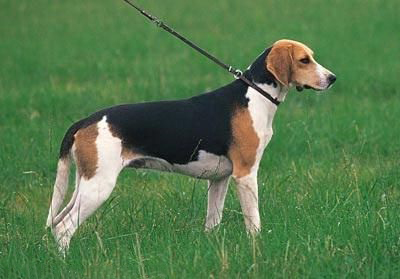
The Anglo-Français de Petite Vénerie needs a long walk with exercise. The dog needs wildebeest training to keep his instincts in shape. Representatives of this breed need prolonged training in the field.
Table of Contents
Breed Information
| Another Name | – |
| Origin | France |
| Height | Males 50-56 cm Females 48-54 cm |
| Weight | 16-20 kg |
| Fur | Short |
| Color | Tri-color, white and red, white and black |
| Lifespan | 11-13 years |
| FCI Classification | Scent hounds and related breeds |
| Group | Hunting dogs, dogs for children |
| Price | $500-600 |
Breed Photos
Origin History
The Anglo-Français de Petite Vénerie is a young breed of a hound dog. The animals were bred in the twentieth century in the 70s and officially recognized in 1978. The Lesser Veneri is the result of crossing the French Poitevin, English Harrier, Blue Gascon, Beagle, and others. The breed is not popular as a pet. The Lesser Veneri has a strong hunting instinct.
In France, they are used for their direct purpose – for hunting. The dog needs regular physical activity, so the animal is not suitable for keeping in an apartment. Also, the breed is not so easy to find because it is not popular outside France and Europe.
Appearance
The Anglo-Français de Petite Vénerie is the perfect balance of parameters between the French and English hound breeds. The dog with floppy ears of medium size, there are small creases.
Representatives of the breed compact with an athletic build. This structure is necessary for productive activity during the hunt.
Representatives of the breed with a long tail, slightly curved upward at the end. The dogs are smooth-haired, with short hair. There are three types of color – tricolor, white with black or red.
Character
The Anglo-Français de Petite Vénerie needs a long walk with exercise. The dog needs wildebeest training to keep his instincts in shape. Representatives of this breed need prolonged training in the field.
The dog likes to be the center of attention with his family. The animal quickly becomes attached to its owner and has difficulty with separation. Prolonged loneliness leads to depression, pet whines, and howls. The Anglo-Français de Petite Vénerie is tolerant of strangers, does not show aggression without reason.
Members of the breed could be a threat to cats and other small animals if they were not raised together. This is due to the strong hunting instinct of the Anglo-Français de Petite Vénerie. Pets are easy to get along with children of all ages.
Care
Representatives of the breed do not require special care. The hair of dogs should be combed regularly, especially during the molting period. Usually, pets’ claws are sharpened during long training sessions; if not, trim them.
Clean dirt from ears and eyes as it accumulates. Brush your dog’s teeth to avoid bad breath. With good care, your dog will be sick less often and feel great.
Training
Training a Petite Vénerie requires a lot of effort, energy, and time. Dog with a stubborn temperament and inherent independence. Representatives of the breed are restless, difficult to concentrate on intellectual training. Anglo-Français de Petite Vénerie is not suitable for inexperienced dog owners – the dog must be socialized from an early age. Pay special attention to her interaction with other pets. It is necessary if you plan to hunt together with friends.
Raised voice and moral pressure harm the obedience of the pet. The best training method is to encourage him to obey commands. Start training with basic commands and gradually increase the complexity of the exercises.
Common Diseases
The Anglo-Français de Petite Vénerie is a dog in good health. The breed rarely gets sick, but some problems can be encountered:
- hip dysplasia;
- diseases of the musculoskeletal system;
- eye infections;
- allergies.
Monitor your baby’s musculoskeletal system from an early age. If abnormalities are detected, contact your veterinarian immediately.
Nutrition
The Anglo-Français de Petite Vénerie is not picky about nutrition. The main thing is that the food is rich in vitamins and minerals. The dog eats porridges, meat, vegetables, and fruits. The latter components of the diet are necessary to strengthen the immune system.
Do not overfeed your pet to avoid obesity. Excess weight can cause cardiovascular problems. Make sure that the pet always has fresh water. Vitamin complexes will not be excessive; give them as supplements to the basic diet.
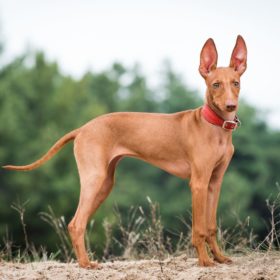 Cirneco dell’Etna
Cirneco dell’Etna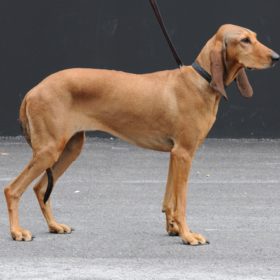 Segugio Italiano
Segugio Italiano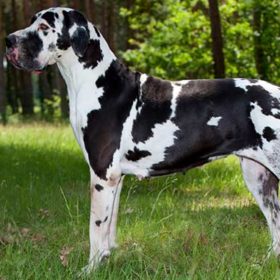 Great Dane
Great Dane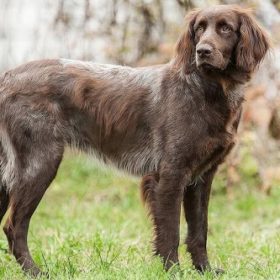 German Longhaired Pointer
German Longhaired Pointer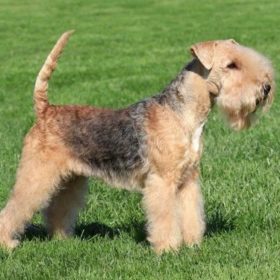 Lakeland Terrier
Lakeland Terrier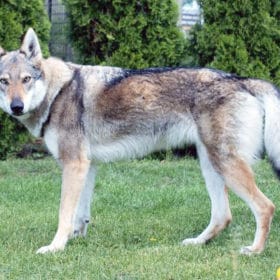 Saarloos Wolfdog
Saarloos Wolfdog